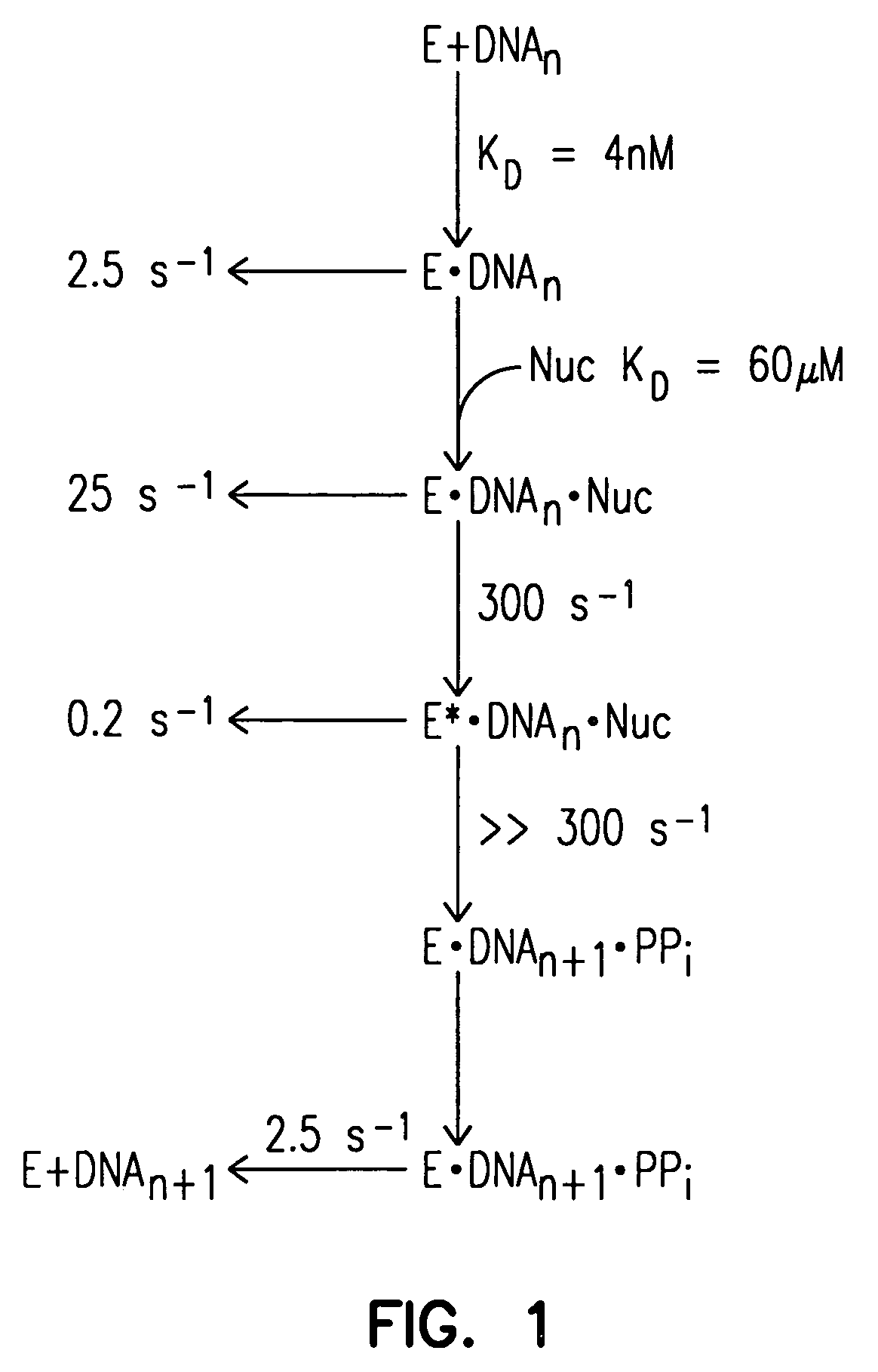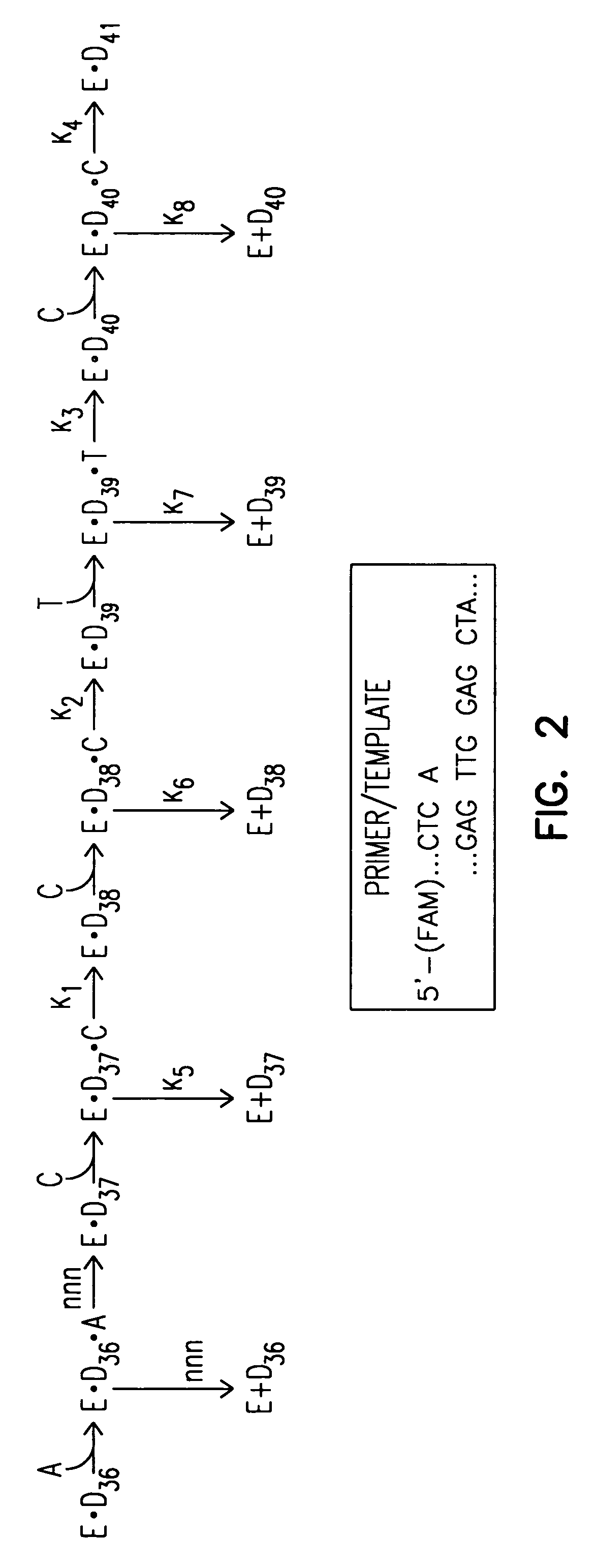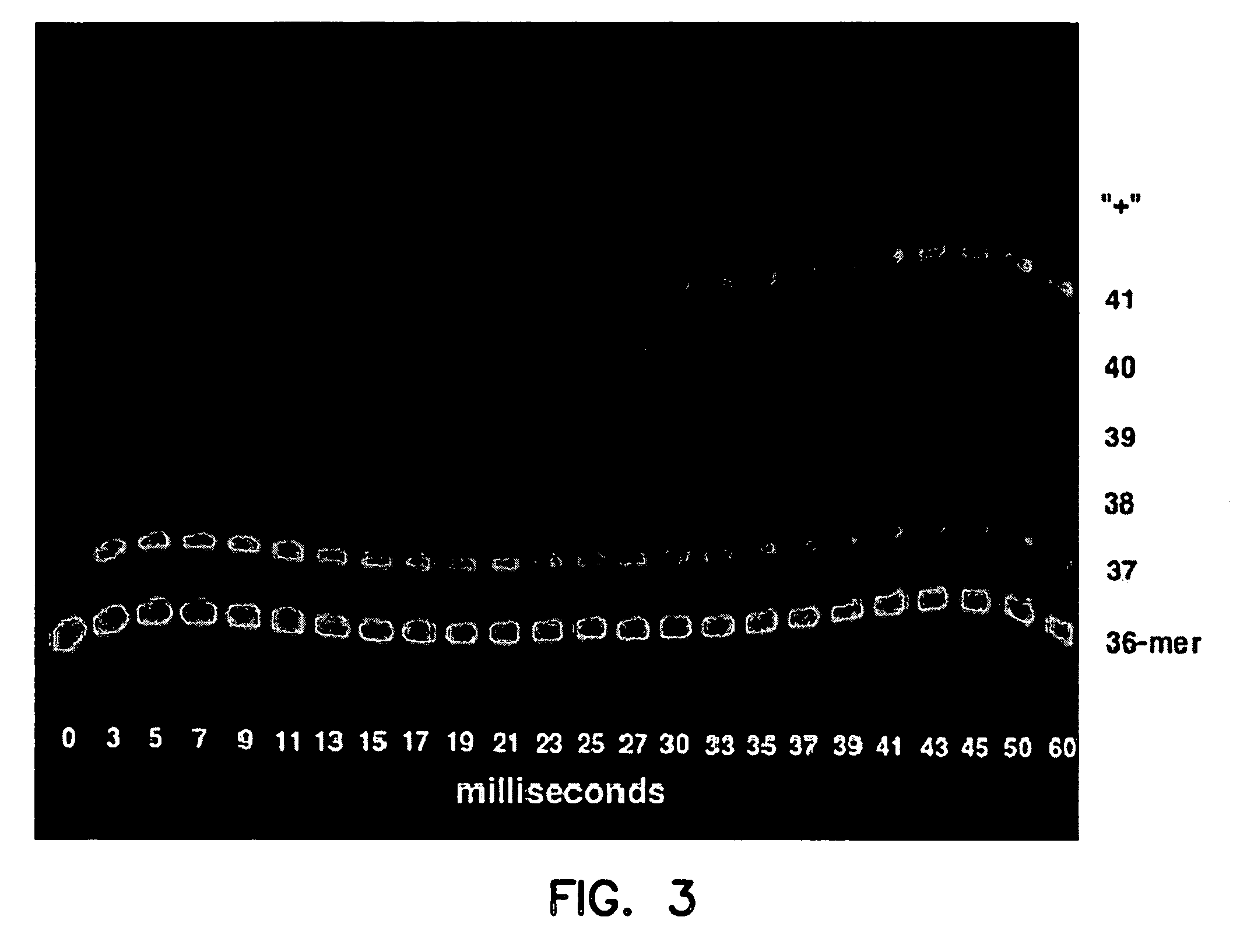Mutant DNA polymerases and methods of use
a technology of dna polymerases and dna, which is applied in the field of dna polymerases, can solve the problems of reducing the efficiency of dna synthesizing enzymes, and reducing the efficiency of polymerases at higher salt concentrations, so as to enhance the processivity of polymerase, improve the ability of polymerase, and reduce the activity of 5′-3
- Summary
- Abstract
- Description
- Claims
- Application Information
AI Technical Summary
Benefits of technology
Problems solved by technology
Method used
Image
Examples
example 1
Tag G46D, F667Y, S543N Sequencing Performance
[0073] The sequencing capabilities of a polymerase of the invention, Taq G46D, F667Y, S543N were investigated. The sequence data from sequencing pGem 3Zf(+) obtained using Taq G46D, F667Y, S543N was compared to data obtained using Taq G46D, F667Y. Comparable data was obtained using both polymerases, indicating that Taq G46D, F667Y, S543N retains its ability to provide accurate sequence data.
[0074] Taq G46D, F667Y was used to sequence a template, but Taq G46D, F667Y was not able to proceed past the sequence 5′-GGGGTAGGGGTAGGGGTTGGGG TG-3′ (SEQ ID NO:7) within the template. In contrast Tth 1B21, Tth GK24, rTth FS, Tth Z05, Tth RQ1, and Taq G46D, F667Y, S543N were able to proceed past the sequence that halted Taq G46D, F667Y. (Tth 1B21, Tth GK24, Tth ZO5, Tth RQ1 are strains of Thermus thermophilus; rTth GK24 is a commercially available recombinant Tth available from Roche Molecular Systems). Thus, all of the polymerases from the thermophi...
example 2
Altered Kinetics of Tag G46D, S543N, F667Y
[0109] The kinetics of Taq G46D, S543N, F667Y were investigated. It was surprisingly found that Taq G46D, S543N, F667Y displays altered kinetics, e.g., in comparison with the kinetics of Taq G46D, F667Y. The added S543N mutation alters the kinetics of the polymerase by decreasing the polymerase's dissociation rate.
[0110]FIG. 1 depicts the two-step nucleotide binding by Taq G46D, F667Y. The diagram shows kinetic steps in the forward polymerization pathway for Taq G46D, F667Y. The polymerase (E) is capable of forming a binary complex with DNA with an equilibrium constant of 4 nM and a dissociation rate of 2.5 s−1. Like other Pol I-type enzymes, Taq G46D, F667Y shows a two-step, induced-fit mechanism for nucleotide (Nuc) discrimination and incorporation. The first step involves the formation of an “open” ternary complex with an equilibrium dissociation constant of 60 μM. Following correct nucleotide binding, the open complex can either rapidl...
PUM
| Property | Measurement | Unit |
|---|---|---|
| Tm | aaaaa | aaaaa |
| temperatures | aaaaa | aaaaa |
| Tm | aaaaa | aaaaa |
Abstract
Description
Claims
Application Information
 Login to View More
Login to View More - R&D
- Intellectual Property
- Life Sciences
- Materials
- Tech Scout
- Unparalleled Data Quality
- Higher Quality Content
- 60% Fewer Hallucinations
Browse by: Latest US Patents, China's latest patents, Technical Efficacy Thesaurus, Application Domain, Technology Topic, Popular Technical Reports.
© 2025 PatSnap. All rights reserved.Legal|Privacy policy|Modern Slavery Act Transparency Statement|Sitemap|About US| Contact US: help@patsnap.com



